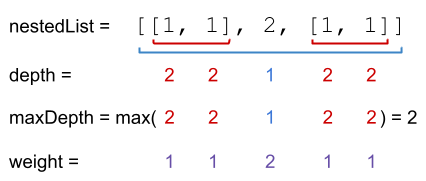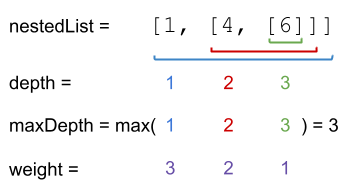364. Nested List Weight Sum II
364. Nested List Weight Sum II
Description
You are given a nested list of integers nestedList. Each element is either an integer or a list whose elements may also be integers or other lists.
The depth of an integer is the number of lists that it is inside of. For example, the nested list [1,[2,2],[[3],2],1] has each integer’s value set to its depth . Let maxDepth be the maximum depth of any integer.
The weight of an integer is maxDepth - (the depth of the integer) + 1.
Return the sum of each integer in nestedList multiplied by its weight .
Example 1:

1 | Input: nestedList = [[1,1],2,[1,1]] |
Example 2:

1 | Input: nestedList = [1,[4,[6]]] |
Constraints:
1 <= nestedList.length <= 50- The values of the integers in the nested list is in the range
[-100, 100]. - The maximum depth of any integer is less than or equal to
50. - There are no empty lists.
Hints/Notes
- 2025/02/18 Q2
- bfs
- Leetcode solution
Solution
Language: C++
1 | /** |